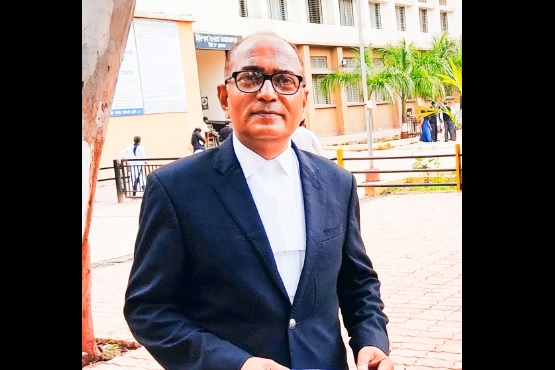Legal Precedents: Do they really deliver justice or just put an end to litigation?

By Shahid Parvez Sayed
NewsBits.in
“Give me the citation!” The Honorable District Judge kept asking me for citation which I didn’t have and was not available. I was opposing bail to a cruel woman who tortured her husband to a point where he killed himself.
Despite my vehement arguments I could not keep the woman behind bars till the investigation was complete because I had no precedent to back up my case. As a result the accused woman was out on bail....
..I knew that man and the torture he was going through at the hands of his wife. I was not surprised when he drowned himself in a pond. Before killing himself he called her, but she challenged him to kill himself if he is man enough.....
That was a fit case for attracting IPC 306 and its consequences, but at the time of the incident she was 50 miles away from the deceased and elements for attracting IPC 306 were not applicable".This is how the legal precedent come in the way of delivering justice.
Precedents, or legal decisions made in previous cases, play a crucial role in shaping the fabric of law. While they provide a foundation for consistency and predictability, critics argue that relying too heavily on precedents may hinder the pursuit of justice, as they inherently look backward rather than always aiming to do what is morally right. This article explores the intricate dance between tradition and justice within the legal system, examining both the benefits and potential pitfalls of relying on precedents.
The Foundation of Legal Consistency
Precedents serve as a cornerstone for legal consistency, offering a framework that allows individuals and businesses to anticipate the outcomes of legal disputes. By looking to past decisions, courts establish a sense of stability and coherence in the legal landscape. This consistency is vital for fostering public trust and ensuring the fair application of the law.
Efficiency in Decision-Making
One of the primary advantages of relying on precedents is the efficiency it brings to the legal system. Judges can draw on established rulings to streamline decision-making processes, avoiding the need to reinvent the wheel in every case. This efficiency not only saves time and resources but also promotes a sense of uniformity in the application of the law.
Challenges of Blindly Following Precedents
While the reliance on precedents promotes stability, it is not without its challenges. Critics argue that a strict adherence to past decisions can perpetuate injustices and fail to adapt to evolving societal norms as was in the above mentioned suicide case.
In situations where a precedent conflicts with contemporary values or new legal insights, blindly following tradition may lead to outcomes that are perceived as unjust. for example : For example: Suresh Kumar Koushal v. Naz Foundation (2013): In this case, the Supreme Court reinstated Section 377 of the Indian Penal Code, criminalizing consensual homosexual acts.
This decision was later overturned in Navtej Singh Johar v. Union of India (2018), marking a shift toward recognizing the rights and dignity of the LGBTQ+ community. The Koushal case is often cited as an example of a regressive precedent that went against principles of equality and non-discrimination.
The Evolving Nature of Justice
Law always looks backwards and requires that legal decision be made on precedents and is consistent on a similar situation. In a complex world where each case is different it’s hard to see every case confirm to the ‘ similar situation’ theory. They all going to be different and they all require a new approach to delivering justice.
Justice is a dynamic concept that adapts to the changing needs and values of society. Relying solely on precedents can stifle the evolution of legal principles, preventing the law from keeping pace with societal progress. Jeremy Bentham, the doyen of legal jurisprudence and a hater of the use of precedent in deciding a case said using precedent is like “ acting without reason, to the declared exclusion of reason, and thereby in opposition to reason”. Honorable Supreme Court Justice Henry Wendell Holmes once remarked “ it was revolting that courts would be bound by presents which persists for no better reason than that it was laid down in the time of Henry IV”.
Balancing Tradition and Justice
Achieving a delicate balance between tradition and justice is imperative for a robust legal system. While precedents provide a foundation for consistency, there should be room for the law to adapt to changing circumstances and evolving moral sensibilities.
Judges must exercise discretion and consider the broader implications of each decision, ensuring that justice is not sacrificed in the pursuit of legal stability. A very good example of setting a good precedent comes from the USA, when in the case of Brown v. Board of Education (1954):
This landmark case in the United States overturned the precedent set by Plessy v. Ferguson (1896), which allowed for racial segregation. Brown v. Board of Education established the principle that separate facilities for different races were inherently unequal, leading to the desegregation of schools and contributing to the broader civil rights movement.
In life as in law it is best that the things decided once and for all. Use of precedents serve that purpose of putting an end of perpetual litigations generations after generations specially in India, where many generations move on to the other world waiting for the justice to be delivered. Justice Brandies famously observed in the defense of precedents that ‘ It is more important that the matter be settled than it be decided right”.
CONCLUSION
The role of precedents in law is a nuanced interplay between tradition and justice. While they establish a foundation for legal consistency and efficiency, a blind adherence to precedent may not always align with contemporary notions of justice. Striking the right balance requires a thoughtful approach, acknowledging the importance of tradition while remaining open to the evolving nature of justice in a dynamic society.
Six months after I argued the abatement of suicide case, I ran into a few junior advocates in the Court elevators. Even though, they represented the other side yet reminded me of the case and told me they thought I was about to create a new precedent with my persuasive arguments and reasoning that day.
Oh well, blame it on precedents!
Refrence:
1: Thinking like a lawyer a new introduction to legal reasining, Federick Shauer
2: IndiaKanoon web site for the case laws
[The author is a senior High Court lawyer]









